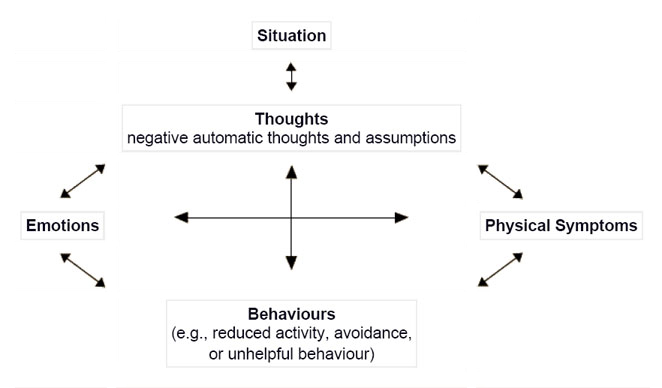Cognitive Behavioural Therapy, or CBT, is a collaborative and skills-oriented treatment approach that teaches you to become your own therapist. You will work with your psychologist to set mutually agreed upon treatment goals and learn strategies that you will practice between sessions to help you work towards these goals.
The focus of treatment is on the here-and-now, particularly in the early stages of treatment, meaning that it focuses on the factors that are currently maintaining your problems. An emphasis on the negative thinking patterns (e.g., thoughts, beliefs, assumptions, attitudes, worries) and behaviours (e.g., avoidance, withdrawal, excessive reassurance-seeking) that are currently maintaining your problems results in quicker improvement in symptoms and functioning.
CBT is a short-term treatment approach that is both structured and goal-oriented. You will identify specific problems to work on and then learn new skills to achieve your treatment goals in a systematic way. This will allow you to efficiently accomplish your treatment goals and increase your confidence that you have the skills required to be your own therapist following treatment.

